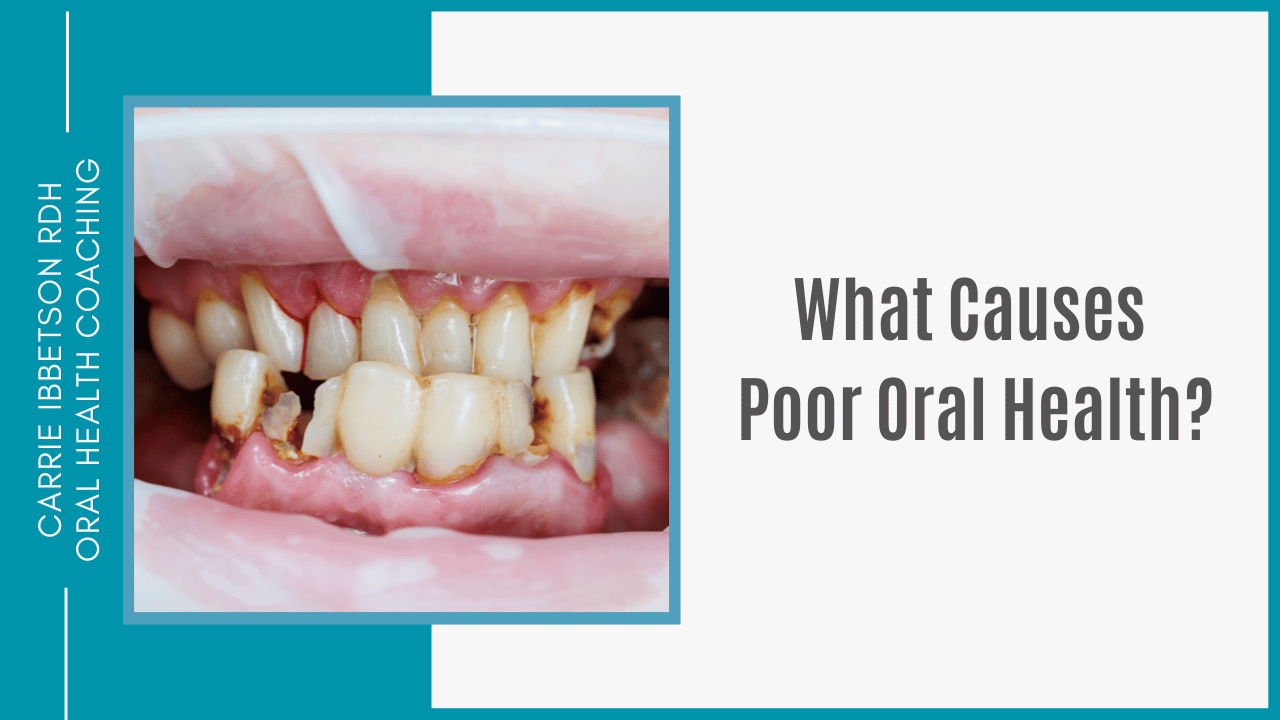What Causes Poor Oral Health?
When people hear that they have poor oral health, a common response is “But I brush twice a day and floss!” Although brushing and flossing are important components of good oral health, there are many other factors to consider. Ask yourself the following questions and see if any of these aspects could be contributing to your poor oral health – and learn more about how our oral health course can help.
How Well Are You Brushing?
How you brush is equally as important as how often. It’s easy enough to brush your teeth without actually cleaning out bacteria that can cause poor oral health. When you brush, pay special attention to your gums, making sure the bristles are reaching underneath the gumline and in between the teeth. Additionally, make sure to brush for enough time to completely clean out bacteria. The American Dental Association recommends brushing for two minutes, which is significantly longer than most people spend brushing!
Are You Using the Right Tools?
The right tools are key for ensuring your oral health stays in top shape. One of the most common mistakes is using toothbrushes that are too stiff. Look for ones with long, thin bristles that can get near the gum line. BURST and TePe Supreme are good choices. You can also run your toothbrush under warm water to soften them further before brushing.
Next, ensure you're using the right tools for cleaning between your teeth. This could be unwaxed floss, interdental brushes, or flossing picks. When selecting floss, be mindful of its ingredients. For your toothpaste, choose one that's free of sorbitol. You don’t want that unnecessary ingredient that cavity-causing bacteria learn to use as a food source.
What Are Your Eating Habits Like?
Taking stock of your eating habits is a good way to boost your oral health as well. It’s always best to eat a varied, nutritious diet full of fiber, lean protein, plant-based foods, and healthy fats. Although you can and should enjoy processed sugars in moderation, they’re a good source of food for bacteria. If you have sugary foods or drinks, consider rinsing with a pH-neutral mouthwash or chewing gum (without sorbitol) rather than immediate brushing.
Are You a Frequent Snacker?
Snacking can be healthy, but frequent snacking requires extra care for your teeth. After eating, your mouth tries to balance out acids and keep bacteria in check. But with lots of snacking, your mouth might struggle, leading to more bacteria and buildup. If you're a regular snacker, take breaks between treats. Instead of brushing right away, chew gum or rinse with a pH-balancing mouthwash to help tackle the acids.
Do You Have a Family History of Gum Disease?
Dental issues can sometimes run in the family. You might be surprised to learn we can "catch" bad mouth bacteria from loved ones. It's a good idea to disinfect your brushing tools regularly, keep them separate from others, and ensure they dry out properly. This can help prevent the growth and spread of unwanted bacteria. If you're curious about what's happening in your mouth, think about doing a home bacteria test. And, when you visit the dentist, ask if they offer guided biofilm therapy. It's a next-level approach to teeth cleaning!
Join Our Membership Program
Keeping your mouth healthy requires a little expert help. To learn more about how you can prevent and heal gum disease, enroll in our online course or learn more about our membership program today.

